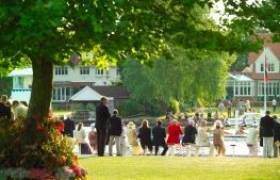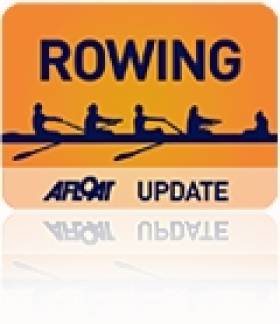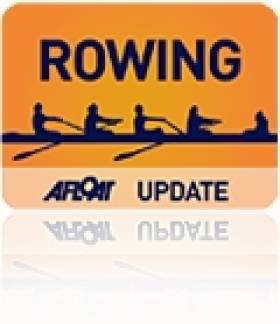Displaying items by tag: Temple Cup
Trinity Eight Fall to American Crew at Henley Rowing
#Rowing: The University of California, Berkeley, beat Trinity in the second round of the Temple Cup for college eights at Henley Royal Regatta today. The American crew won easily in the first round and were hot favourites to win this race. They franked their form and beat the Dublin university unit with ease. The verdict was two and half lengths.
Henley Royal Regatta, Day Two (Irish interest)
Diamond Sculls (Open Single Sculls): J Stimpson bt N Kenny 3¼ l.
Temple Cup (College Eights): University of California, Berkeley bt Trinity 2½ l.
Trinity Exit Henley With Defeat by Cornell University
#ROWING: Trinity bowed out of the Temple Cup for student eights at Henley Royal Regatta, losing by two-thirds of a length to Cornell University of the United States. Cornell, who had a close call against Oxford Brookes B in the first round, got off to a good start and took the lead. The heavier Trinity crew were able to limit that lead to about three-quarters of a length, but could not draw level, and encountered problems with their steering. Cornell covered a late push to win.
Henley Royal Regatta, Day Two (Irish interest)
Temple Cup (Eights, Student): Cornell University, United States bt Trinity 2/3 l 6 mins 39 sec.
Princess Elizabeth (Eights, Schoolboy): Gonzaga College High School, United States bt Portora Royal School ½ l, 6:38
Cassells Wins at Henley With Impressive Oxford Brookes
#ROWING: Joel Cassells was part of the Oxford Brookes eight which won the Temple Challenge Cup for student eights at Henley Royal Regatta today by beating Brown University from the United States. The time of six minutes 29 seconds was fast – bettered only in the Temple this year by Brookes’s time in the semi-final when they beat Cornell University by half a length. Cassells, a 20-year-old oarsman from Coleraine, competed for Ireland at the World Junior Championships and, in a pair with fellow Bann clubman Chris Black, won gold twice at the Coupe de la Jeunesse in 2011.
Henley Royal Regatta, Finals (Irish interest)
Temple Challenge Cup (Men’s Student Eight): Oxford Brookes A bt Brown University 2¾l, 6:29































































